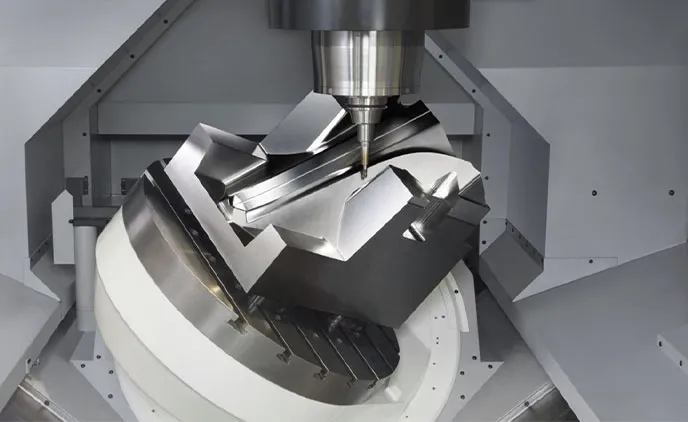What is Black Oxide? Principle, type,process, operating points,advantage and application of Black Oxide

Ⅰ Introduction to Black Oxide
The black oxidation process reacts the metal surface with an oxidizer under certain conditions to form a dense black oxide film, thereby improving the corrosion resistance, wear resistance and aesthetics of the metal. The product after black oxidation treatment not only has a good visual effect, but also can effectively resist the erosion of environmental factors to extend the service life.
Ⅱ principle
Black oxidation is mainly based on metal oxidation reactions. In the alkaline or acidic solution, an appropriate amount of oxidant (such as potassium permanganate, bichromate, etc.) is added to make the metal surface REDOX reaction with the oxidant to generate a dense black oxide film. This oxide film is mainly composed of iron oxides, such as ferric oxide (Fe:04), which not only has good corrosion resistance but also gives the metal surface a unique black luster.

Ⅲ Black Oxide type
The operating temperatures at which mechanics perform the black oxide surface treatment process vary, and these temperatures determine the different types of black oxide coatings. They include:
1. Hot oxidized black surface treatment
Thermal oxidation black surface treatment is the most common type of black oxidation surface treatment. It requires the part to be immersed in a high-temperature salt bath, using a salt bath including caustic soda (NaOH), nitrate or nitrite. The temperature range of the process is typically between 275 and 295 degrees Fahrenheit.
The temperature of the black oxide coating process must be maintained within this range. Because the lower temperature will prolong the process time, and the higher temperature will lead to rust on the surface of the finished parts.
2. Medium temperature oxidizing black
This process is similar to the thermal oxidation black surface treatment, the difference is only that the operating temperature is different. Operating temperatures range from approximately 194 to 248 degrees Fahrenheit. This temperature also converts the metal into magnetite. However, compared with the thermal oxidation black surface treatment, it has the advantage that no corrosive fumes are produced during processing.
3. Cold oxidation black
This process is also known as room temperature oxidation black. Unlike other types of methods, this process deposits copper selenide on a metal surface at a temperature of 68-86 °F. The black oxide surface produced by this process does not wear as well as other processes.

Ⅳ Process flow
1. Pre-treatment: including oil removal, rust removal, cleaning and other steps to ensure that the metal surface is clean and free of impurities.
2. Oxidation treatment: The treated metal parts are immersed in the configured oxidation liquid, and the temperature, time and other parameters are controlled to make the oxidation reaction occur on the metal surface.
3. Cleaning: After the oxidation is completed, clean the residual oxidation liquid and impurities on the surface with clean water or dilute acid.
4. Post-treatment: closed treatment, drying and other operations as needed to improve the stability and durability of the oxide film.

Ⅴ Operating essentials
1.Strictly control the concentration, temperature and time of the oxidation liquid to ensure the consistency of the oxidation effect.
2.Pre-treatment should be thorough to avoid residues affecting oxidation quality.
3.Pay attention to ventilation during operation to prevent harmful gas accumulation.
4.Check and maintain equipment regularly to ensure the stability and safety of process parameters.
Ⅵ Common problems and solutions
Uneven oxide film: adjust the concentration, temperature or time of the oxidation liquid; Ensure pre-treatment is thorough.
Surface spots or impurities: strengthen the cleaning steps; Check the oxidation solution for contamination.
Poor adhesion of oxide film: check whether the metal substrate is suitable for black oxidation treatment; The oxidation process parameters were optimized.

Ⅶ Black Oxide advantage
1. Improve corrosion resistance
By forming a dense oxide film to isolate the direct contact between the metal substrate and the external environment, prevent corrosion.
2. Enhanced wear resistance
the oxide film has a certain hardness, which can improve the wear resistance of the metal surface.
3. Beautify the appearance
give the metal surface a uniform and delicate black appearance, improve the overall texture of the product.
4. Reduce reflectance
The surface reflectance after black oxidation is low, which is suitable for occasions where light reflection needs to be reduced.
Ⅷ Black Oxide application
Automobile: oil filter tank, suspension bushing, spark plug, brake valve and other parts
Medical: Used for light-sensitive medical devices such as X-ray machines
Electrical parts: stripper, timer gear, cutter, etc
Assembly tools: bearings, fasteners and measuring tools
Hong Zhong Xin's high quality surface finishing services
Hong Zhong Xin has many years of experience in providing cost effective surface treatment solutions for various industries and we offer a wide range of materials and finishes. Our team of experts works with you to create custom metal finishing programs, so you can be sure to receive a high quality service that meets all your unique needs.
If you have any production needs, please contact us for a free quote, please click "Contact us".
















